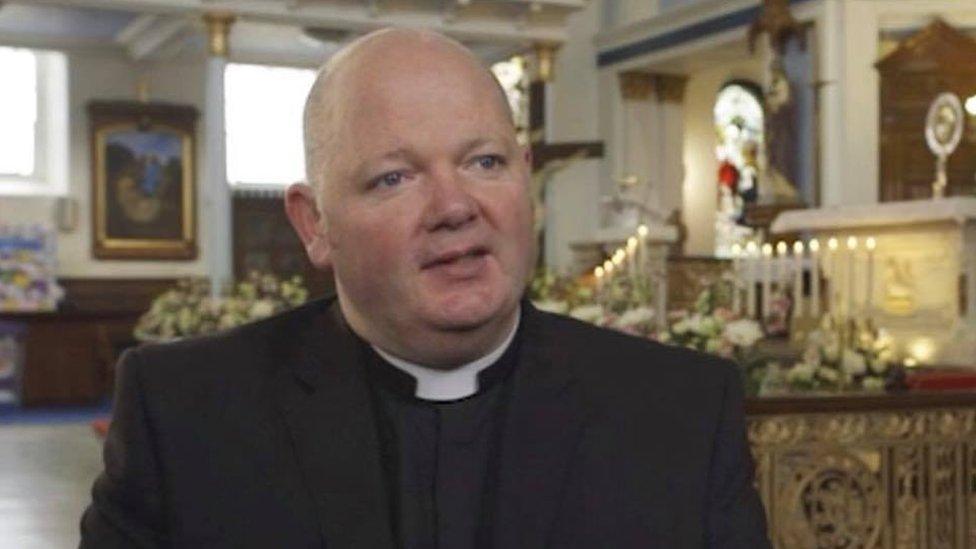Police condemn 'racist and sectarian' singing at Orange walks
- Published
Thousands of people have taken part in a number of Orange Walks in Glasgow
Police have condemned "outbreaks of racist and sectarian singing" by some of those attending Orange Order processions in Glasgow.
It said the behaviour was "utterly unacceptable" and a number of arrests had been made in connection with various offences.
The Orange Order has said there had been parades in Glasgow for 200 years with "very, very little trouble".
It insisted the group was not anti-Catholic.
Thousands of people attended the marches through the city, which were rescheduled from 12 July due to the Covid rules.
Police Scotland said 800 officers had been called in to police the marches.
Chief Superintendent Mark Sutherland said: "We are aware that on a number of occasions there have been outbreaks of racist and sectarian singing by some of those attending to support the Orange Order processions, this is utterly unacceptable and we completely condemn this behaviour."
He said action would be taken "against those intent on causing harm and dividing our communities" where possible, and that arrests had been made.
Follow-up investigations would be launched as necessary, he added.
Ch Supt Sutherland continued: "Once again, we see a number of people intent in causing offence and stirring up hatred by singing unacceptable sectarian and racist songs.
"It is clear that sectarianism remains a serious, ongoing problem in Scotland."
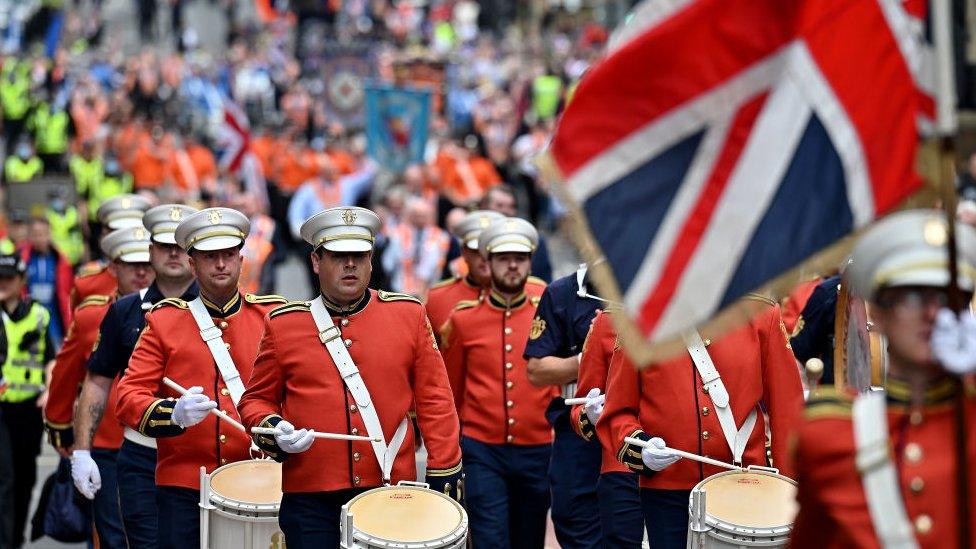
Members of the Orange Order and their supporters march through the city
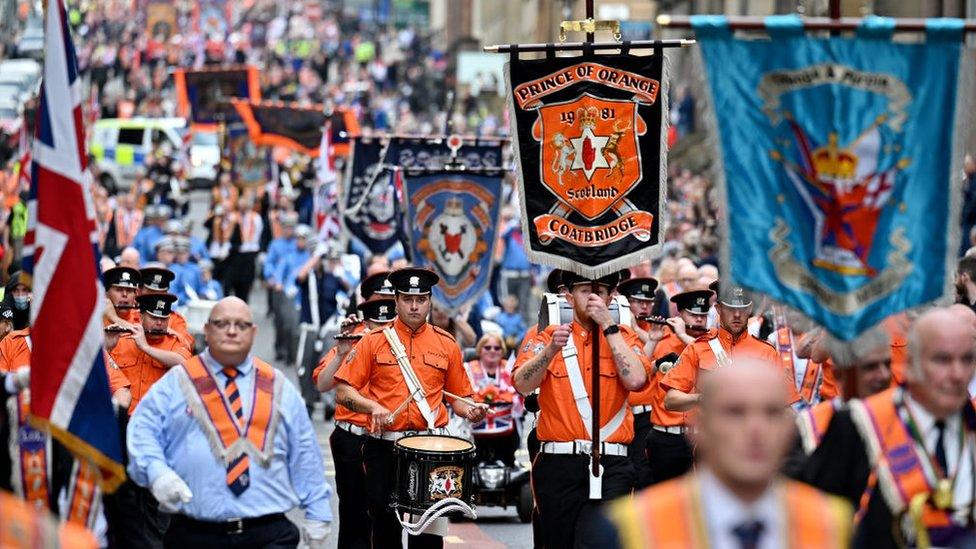
Over the course of the day the parades passed three Catholic churches, where vigils were held by campaigners who said the walks were anti-Catholic.
Ronnie Convery, of the Archdiocese of Glasgow, earlier told the BBC that the Catholic Church acknowledged people had a legal right to march through the city. However, he asked that the parades were timed and go on a route that avoided causing "fear and alarm" in the Catholic community.
Glasgow City Council has the power to alter a parade's route or timing but has opted not to do so. A spokesman for the council said the parades would be "more disruptive to the life of the city" if they took an alternative route.
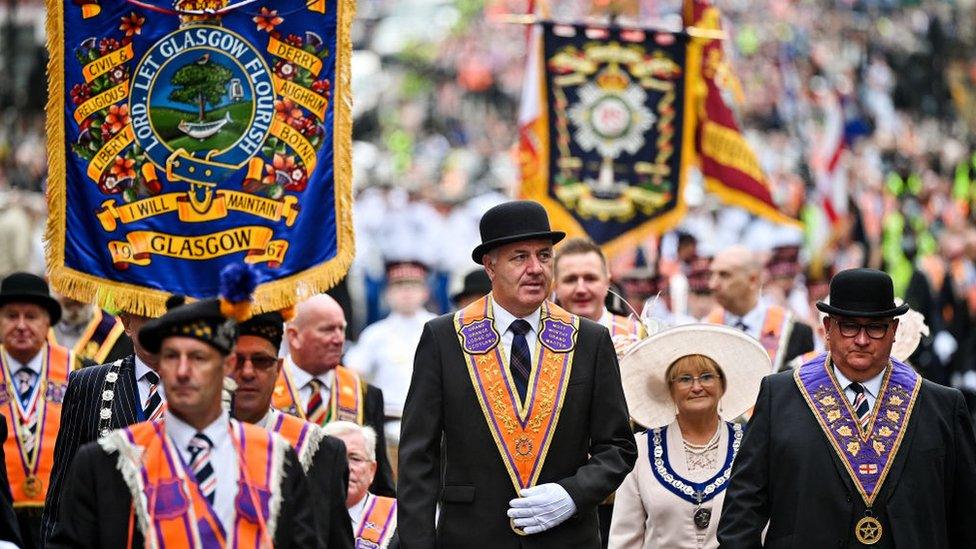
Jim McHarg, Grand Master of the Grand Orange Lodge of Scotland, said the organisation had a right to its procession
Jim McHarg, Grand Master of the Grand Orange Lodge of Scotland, said his organisation had "every right" to process through the streets.
"As an organisation, we have always respected other's points of views and opinions.
"Our organisation is based on the motto of civil and religious liberty for all people - and that includes us."
He said the council told the Orange Order to parade on main streets, and Catholic churches were built on main streets so it was inevitable that parades would have to pass some churches.
"We do not go there to cause any offence whatsoever. It's most certainly not deliberate - we are not out to offend anyone."
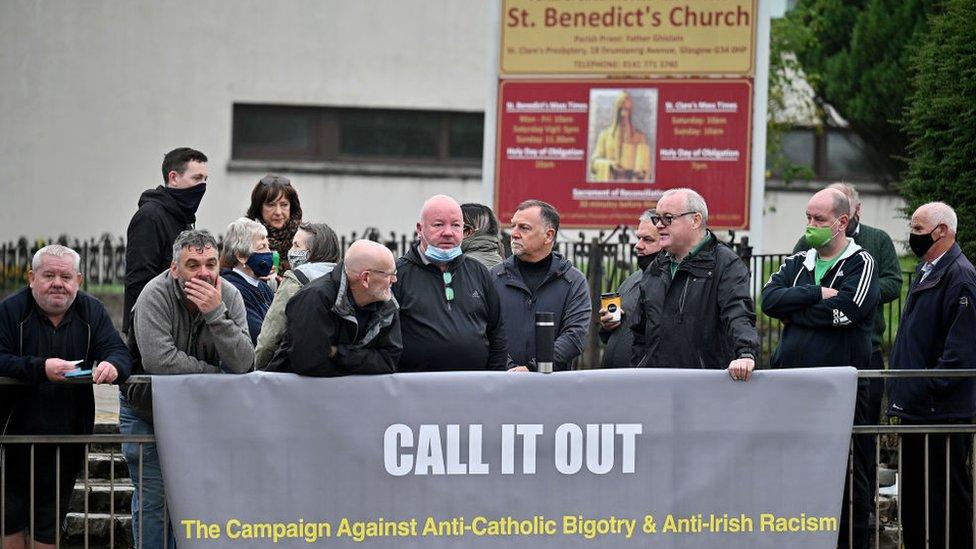
Supporters of Call It Out gathered outside St Benedict's Catholic church in Easterhouse as an Orange walk passed
Jeanette Findlay, from the Call It Out campaign, which opposes anti-Irish and anti-Catholic bigotry, said the marches "absolutely should be rerouted" by the council so they did not pass Catholic churches.
She pointed out that it had the powers and had exercised them in the past.
Ms Findlay said this would "balance the rights of the community", and said she was "very happy" for the Orange Order to march, and she would defend their right to, adding "All that we're asking is that they don't march past Catholic churches".
Glasgow City Council said 32 roads in the city were closed off for the processions.
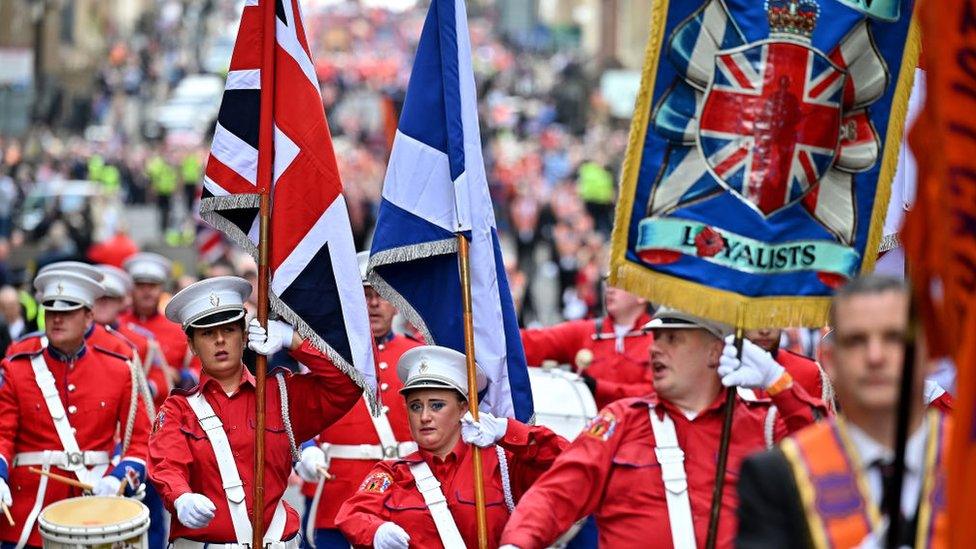
The Church of Scotland said it condemned anti-Catholic bigotry and sectarianism.
It added: "Over the years we have worked together [with the Roman Catholic Church] to tackle sectarianism and support one another.
"We speak to leaders in the Roman Catholic Church every week and greatly appreciate the friendship that exists between our churches and our communities."
There have been a number of high-profile incidents around parades by Protestant Loyal Orders and Irish Republican demonstrations in Glasgow in recent years.
Recent incidents linked to the marches include an attack on a Catholic priest by a follower of an Orange parade in 2018.
Violent protests at a Republican march in 2019 led to a number of parades being cancelled by Glasgow City Council.
Last summer's parades did not go ahead as a result of the Covid pandemic.
There have also been outbreaks of violence at some events related to football.
A number of people were assaulted in May after thousands of Rangers fans took to the streets of Glasgow - despite the Covid restrictions - when the club won the Scottish Premiership.
The first minister criticised the "sectarian" scenes as "utterly unacceptable", saying that "vile anti-Catholic prejudice" was on display.
Earlier this month, a number fans were charged after footage emerged online of fans singing a sectarian song ahead of an Old Firm game.
Related topics
- Published3 July 2020
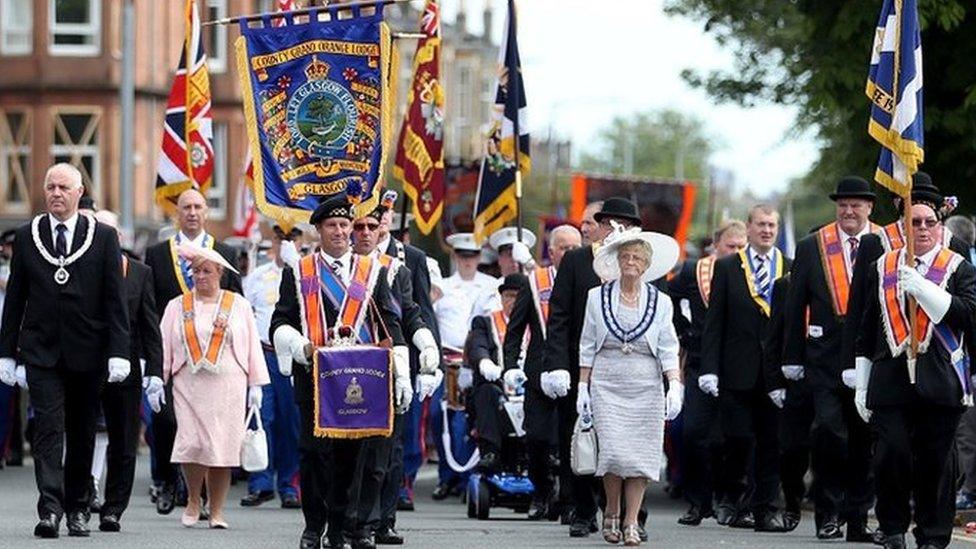
- Published18 September 2021

- Published31 August 2019
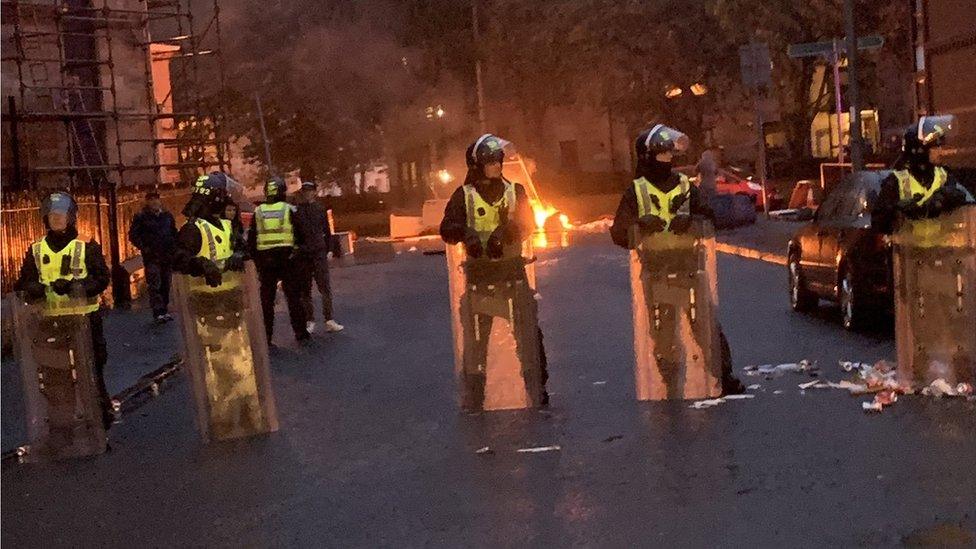
- Published27 February 2019
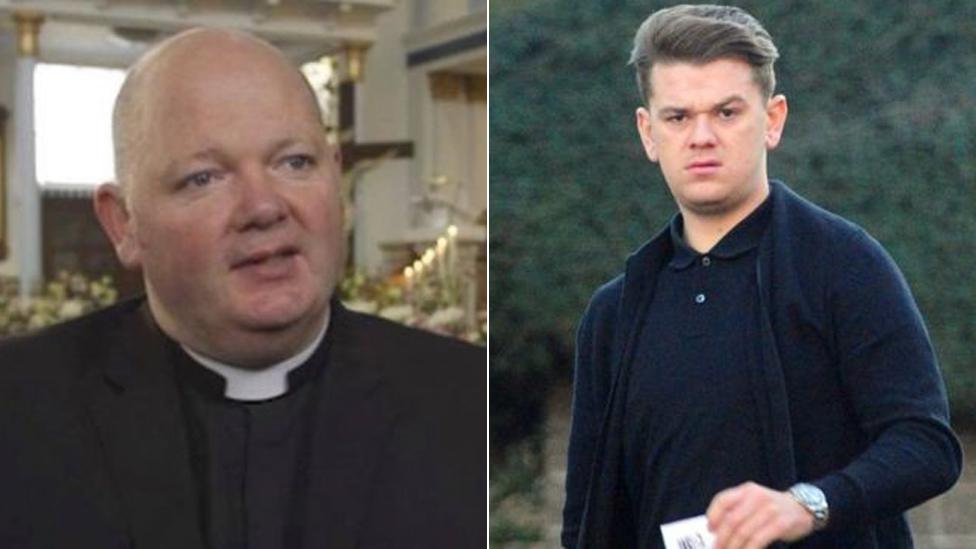
- Published9 July 2018
